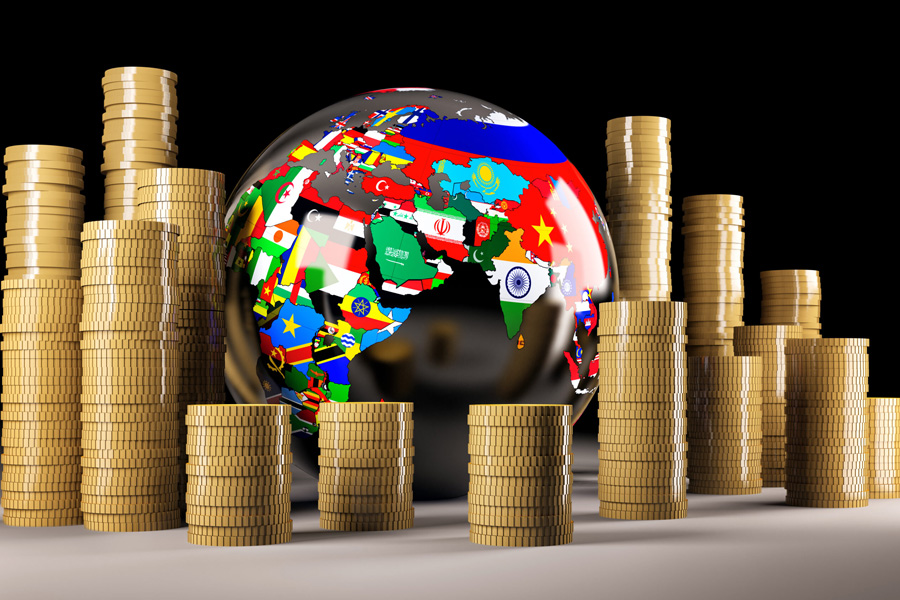In today’s interconnected world, entrepreneurs are no longer confined to the tax systems of their home countries. With globalization, technology, and flexible residency options, setting up operations in low tax countries and offshore planning hubs has become a legitimate and strategic way to secure long-term financial growth.
From Dubai to the Cayman Islands, expats and digital business owners are choosing locations that combine opportunity, safety, and low taxation. Offshore structures no longer mean secrecy — they represent efficient, lawful planning designed to preserve wealth and increase global flexibility.
For global entrepreneurs, the goal is simple: to align personal and corporate tax structures with mobility and compliance.
Why Entrepreneurs Seek Low Tax Jurisdictions
High taxes, unpredictable policies, and complex regulations in Western nations are driving entrepreneurs to look elsewhere. Low tax countries offer an alternative: streamlined systems that support innovation while protecting profits.
Many startup founders and investors want to focus on growth, not endless paperwork. Jurisdictions like the United Arab Emirates, Singapore, and Monaco provide an environment where taxation is minimal, yet infrastructure and financial systems remain world-class.
The appeal isn’t just the tax rate it’s the ability to operate freely. Entrepreneurs can reinvest savings into expansion, diversify portfolios, and access global markets more efficiently.
In the post-pandemic digital economy, mobility and adaptability are as valuable as capital.
The Role of Offshore Planning in 2025
Modern offshore planning is about legitimacy and optimization, not secrecy. It involves choosing the right jurisdiction, opening international accounts, and maintaining legal structures that minimize tax exposure while staying compliant with OECD and FATF rules.
Offshore planning in 2025 focuses on four main goals:
- Protecting assets from overregulation.
- Reducing double taxation through legal treaties.
- Diversifying currency risk and investments.
- Securing residency or citizenship in tax friendly regions.
Unlike outdated offshore systems that thrived on anonymity, today’s models emphasize transparency. Financial authorities now exchange data globally, ensuring that offshore strategies are built on solid, compliant foundations.
The result is a clean, credible framework for entrepreneurs to build long-term financial independence.
Understanding Legal Tax Optimization
The key to success in low tax countries and offshore planning lies in understanding what’s legal and what’s not.
Tax avoidance (legal) is not the same as tax evasion (illegal). Legal optimization means structuring your affairs under the laws of the jurisdictions you operate in. It may involve forming companies, relocating headquarters, or acquiring a second residency all within clear international guidelines.
This distinction is critical for entrepreneurs who value reputation. The best global business owners don’t hide their assets they manage them wisely.
By aligning operations with compliant tax jurisdictions, you gain the benefits of reduced taxation, operational efficiency, and global credibility.
Top Low Tax Countries for Business and Residency
The world offers numerous tax-friendly destinations, but each has its strengths. Below are some of the most attractive low tax countries for entrepreneurs in 2025:
- United Arab Emirates (UAE): Zero personal income tax, robust corporate structures, and easy digital company registration.
- Cayman Islands: Perfect for financial and fintech companies, offering no direct taxes and a respected legal framework.
- Singapore: Moderate tax rates, reliable banking, and strong global business ties.
- Panama: Territorial taxation, meaning foreign income is not taxed.
- Monaco: Glamorous lifestyle with no income tax, though residency costs can be high.
Each destination caters to different profiles. Dubai attracts digital entrepreneurs and e-commerce owners, while Singapore appeals to those in finance and technology.
The flexibility of these regions allows global founders to operate seamlessly across borders without the tax pressure of traditional high tax nations.
The Value of Citizenship by Investment
For entrepreneurs seeking mobility and global access, citizenship by investment is one of the smartest tools available.
CBI programs allow individuals to gain citizenship in exchange for investing in a country’s economy through real estate, bonds, or business contributions. Caribbean nations like St. Kitts & Nevis, Dominica, and Grenada are well-known for these initiatives.
Beyond travel freedom, citizenship by investment also enhances tax planning. A new passport can open banking opportunities, facilitate easier movement between countries with no income tax, and reduce dependency on restrictive home systems.
For entrepreneurs pursuing long-term offshore planning, CBI adds a critical layer of stability and flexibility in global finance.
How International Bank Accounts Support Offshore Planning
Efficient banking is the backbone of successful offshore structures. With international bank accounts, entrepreneurs can manage transactions in multiple currencies, protect against inflation, and ensure fast cross-border payments.
Digital banking has transformed offshore finance. Fintech banks in Dubai, Singapore, and Europe now offer remote account setup, low fees, and enhanced digital security.
Having multiple international accounts also protects against political instability or currency devaluation in one region. As discussed on OffshoreCorpTalk, entrepreneurs are increasingly integrating digital wallets and crypto-friendly banks into their structures to ensure long-term flexibility.
When used strategically, offshore banking becomes not a hiding place but a platform for global opportunity.
Challenges and Compliance in a Transparent World
The rise of global transparency frameworks has changed the landscape. FATCA, CRS, and OECD initiatives have created a network of automatic financial data sharing.
This means compliance is essential. Entrepreneurs using low tax countries and offshore planning must ensure that every entity, account, and investment is properly declared and structured.
While the paperwork might seem burdensome, it ensures protection and credibility. Authorities are more tolerant of compliant structures than secretive ones.
In practice, this has improved the reputation of offshore finance. Today’s expats and business owners enjoy both legitimacy and benefits without the risks associated with older models of hidden wealth.
The Future of Global Entrepreneurship and Tax Mobility
Looking ahead, global tax systems are likely to become more integrated, digital, and mobile. Entrepreneurs will continue leveraging new tools like blockchain verification, AI-assisted compliance, and virtual residency programs.
The future will also see a rise in hybrid setups where a company might be registered in one jurisdiction, operate remotely from another, and maintain accounts in multiple currencies.
Innovation in global finance means that expats no longer need to compromise between legality and flexibility. With the right structure, low tax countries and offshore planning can unlock unmatched financial freedom and efficiency.
As new countries with no income tax compete to attract global entrepreneurs, this mobility will redefine where business happens and how wealth is managed globally.
Conclusion
In 2025, the game has changed for entrepreneurs. The old model of secrecy is gone replaced by transparency, technology, and opportunity.
Modern offshore planning empowers entrepreneurs to build businesses that are efficient, compliant, and globally mobile. By leveraging citizenship by investment programs and international bank accounts, today’s expats can secure both freedom and legitimacy.
The smartest entrepreneurs aren’t running from taxes they’re optimizing within the law.
The combination of low tax countries and offshore planning offers a roadmap to success for anyone ready to adapt, explore, and build across borders.
The offshore future isn’t about hiding it’s about thriving in an open, borderless world.





